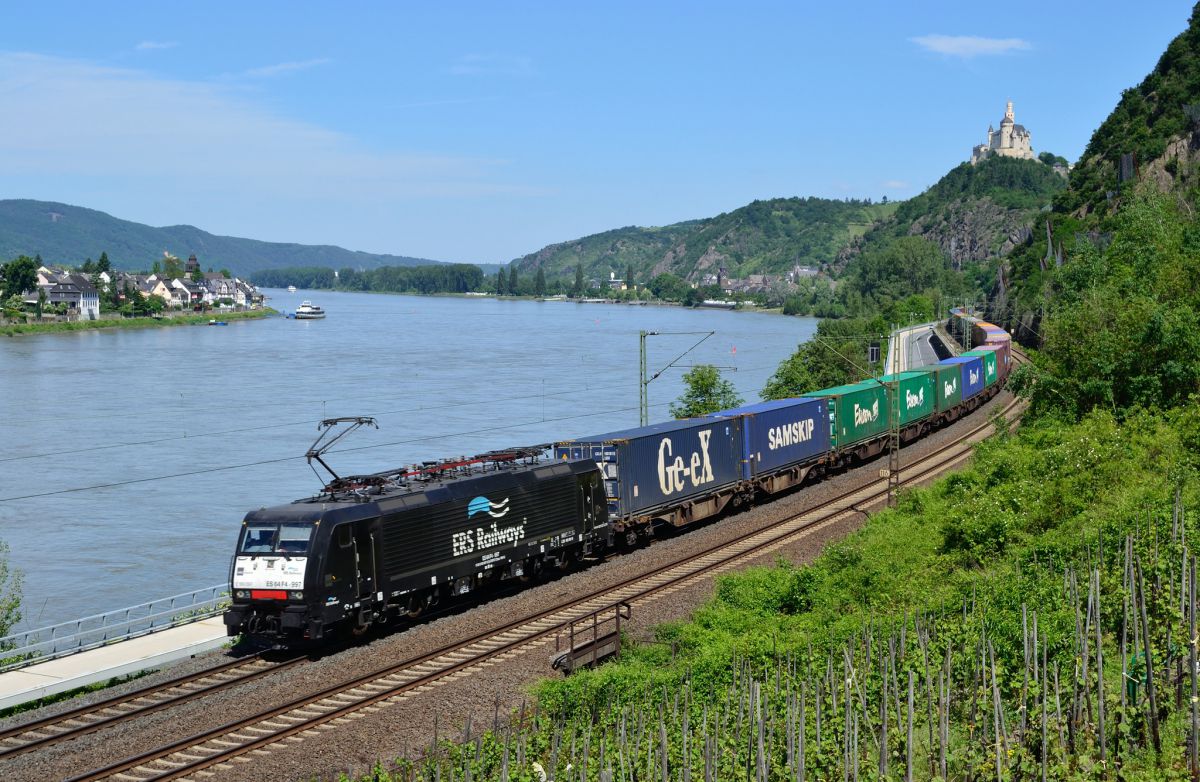Rail freight will face significant challenges to continued operations over the coming months, particularly in light of a significant slowdown in industrial output due to national measures taken to control the outbreak of COVID-19. These short-term measures could cause longer term damage to the sector, namely the disappearance of operators and capacity, if measures are not taken to support the industry. ERFA and UIP therefore call for State support measures to be granted to Infrastructure Managers coupled with a short-term waiving of Track Access Charges and Energy Charges for rail freight undertakings.
The outbreak of COVID-19, and national responses to stem to spread of the virus, have created significant challenges to the short-to-medium term viability of rail freight operations. Industrial output is limited and this is leading to a reduced demand for freight movement, including rail freight. These national responses are merited and supported, but it must still be recognised that measures are warranted to support the industry.
Given the exemptional circumstances, ERFA and UIP believe it is appropriate to use Article 107(2)(b) and Article 107(3)b of the TFEU to allow Member States to assist the sector over the coming months. Any mechanism must be horizontal, sectoral and compliant with existing competition rules. The objective of any aid must solely be to assist all operators on a short-term basis and solely address difficulties directly or indirectly related to the slowdown of economic input and reduction of traffic.
ERFA and UIP strongly believe that short-term support is essential in order to ensure that rail freight undertakings are in a healthy condition once industrial output resume. Without government actions there is a risk that operators will cease to exist or have to significantly reduce their capacity which would have a longer lasting impact on Europe’s modal shift objectives.
We therefore believe that state support is warranted and necessary, but must be done in a way that benefits the rail freight industry equally and only addresses short-term issues related to COVID-19.
State Support for Infrastructure Managers
It is critical for the rail freight industry that infrastructure managers have the support measures and resources in place to ensure the network can remain fully operational – even with reduced traffic on the network – whilst also being in a position to reduce the economic costs of rail freight undertakings. The role of Member States at this point should be to introduce support measures to ensure infrastructure managers are in a position to do this. As stated, these support measures should also be joined with measures to support the rail freight industry operating on the network. These measures should be, but are not limited to:
- Waiving of Track Access Charges and Energy Charges –The best way to assist all rail freight undertakings, and at the same time to promote modal shift, is to waive all Track Access Charges and Energy Charges for 2020, with direction of public aid funds to the operators of infrastructure, service infrastructure, distribution and transmission systems, and the suppliers of traction energy. This will reduce the costs for all railway freight undertakings and make a reduction in industrial output more manageable.
- Abolish Short-Term Path Cancellation Charges – A sudden drop in cargo will require rail freight undertakings to cancel trains and paths for reasons out of their control. All cancellations charges for paths should be waived for 2020. Positive examples can be observed in Switzerland and Germany, where cancellation charges have been abolished.
- Maintain Existing Capacity Levels – In order for rail freight undertakings to maintain a good service, it is essential the critical capacity remains open – even in the event of reduced overall traffic. State support measures should also ensure that infrastructure managers have the resources necessary to keep capacity open.
- Waiving of Fees for Parking Locomotives and Wagons – The expected downturn of volumes will lead to an excess of rolling stock. While in road transportation unused trucks can be parked free of charge nearly everywhere, in rail transportation the parking of unused locomotives and wagons has a relatively high cost. During this crisis, the parking of unused rolling stock should not be an additional burden to rail freight operators.
State Support for Rail Freight Undertakings
Direct State Aid for rail freight undertakings should only be considered if it remains compatible with the internal market and is directly related to the COVID 19 crisis. Any direct aid measures should only be given if it is guaranteed that there will be no distortion of competition by favouring certain undertakings. In particular, the Commission shall ensure that national state aid-schemes will not be granted or used for the purchase of new rolling stock since this would completely distort the market and the competitive landscape. All operators, large and small, face similar challenges related to COVID-19 competition rules remain as the necessary framework of the liberalised railway system.



-min-1764237245.jpg)